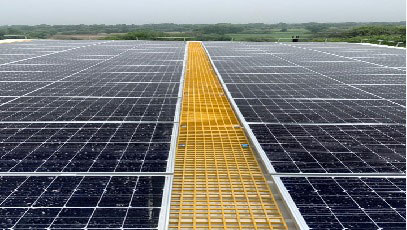Solar energy has been transformative in both developed and developing countries, offering numerous benefits that are revolutionizing the world in several ways:
- Energy Independence: Solar power reduces reliance on traditional fossil fuels, providing countries with greater energy security and independence. This is particularly significant for developing nations that might not have established energy infrastructures.
- Environmental Impact: Solar energy is clean and renewable, producing electricity without emitting greenhouse gases or pollutants. Its adoption helps mitigate climate change by reducing carbon footprints, improving air quality, and preserving ecosystems in both developing and developed countries.
- Cost-Effectiveness: The cost of solar panels and associated technologies has significantly decreased over the years. This has made solar energy more affordable and accessible, especially in areas with limited access to electricity. For many developing nations, solar power can be a more economical choice compared to setting up traditional power grids.
- Job Creation: The solar industry generates employment opportunities across various sectors, from and installation to maintenance and research. This can positively impact local economies by creating jobs and fostering skill development in both developing and developed countries.
- Rural Electrification: Solar energy facilitates access to electricity in remote or rural areas where establishing conventional power infrastructure might be expensive or impractical. This empowers communities by providing clean energy for homes, schools, healthcare facilities, and businesses
- Technology Advancements: Ongoing research and development in solar technology have led to innovations like more efficient solar panels, energy storage solutions (such as batteries), and smart grid integration. These advancements improve the effectiveness and reliability of solar energy systems.
- Government Policies and Incentives: Many governments worldwide are implementing policies and incentives to promote the adoption of solar energy. Subsidies, tax credits, feed-in tariffs, and net metering encourage individuals and businesses to invest in solar installations.
- Resilience and Disaster Recovery: Solar energy systems, especially when combined with energy storage solutions, provide resilience during natural disasters or grid failures. They can continue to generate electricity independently, offering critical power supply during emergencies.
- In developed countries, solar energy has seen substantial growth in rooftop installations, utility-scale solar farms, and integrated solar systems in smart cities. These nations often focus on grid modernization and incorporating solar energy into existing infrastructure.
- In developing countries, solar power plays a crucial role in extending electricity access to remote areas and supporting sustainable development. It helps bridge the energy gap, improve living standards, and foster economic growth by providing reliable and clean energy sources.
- Overall, solar energy is making significant strides globally, contributing to a more sustainable and environmentally friendly future while also addressing energy challenges in both developed and developing nations.And most extremely positive on GLOBAL WARMING.



